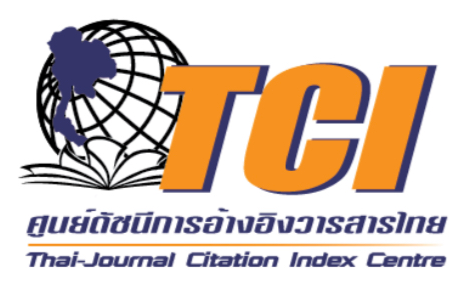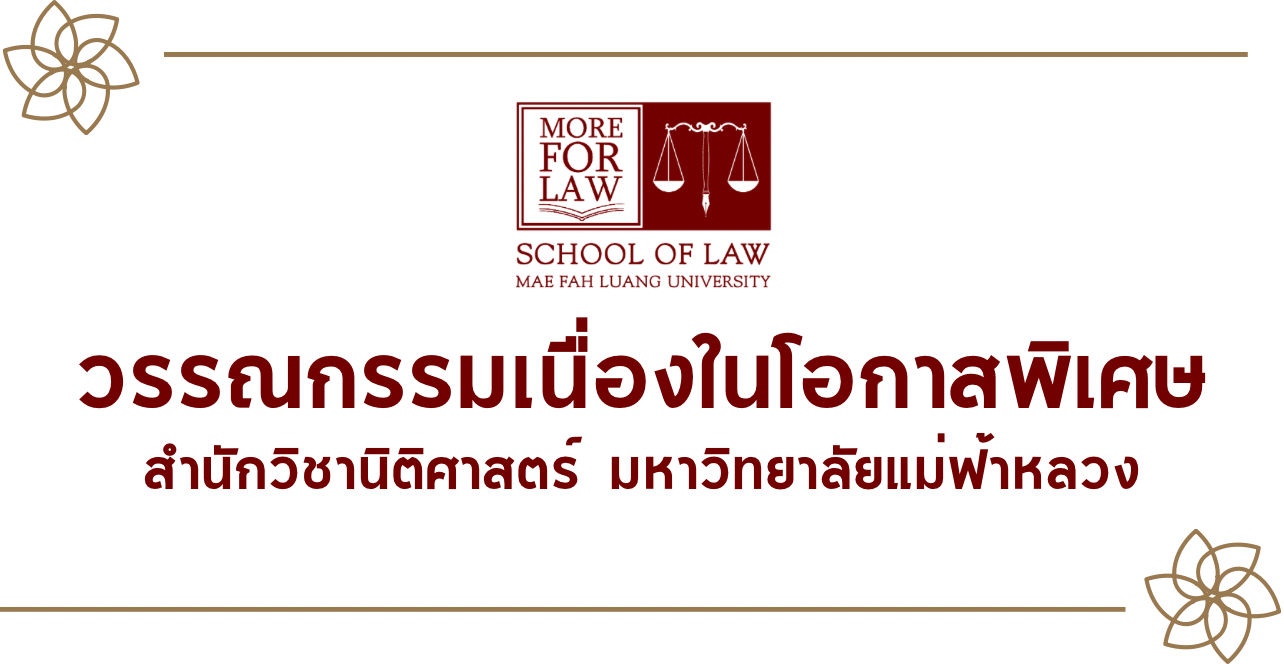The Legal Regulations in Promote of Maritime Professionals Development
DOI:
https://doi.org/10.14456/mfulj.2022.1Keywords:
Measures, Law, Promote, Maritime ProfessionalsAbstract
In this article, the author’s focus is on considering the trends in law that will govern the maritime industry in the area of international maritime transportation such as focusing on supporting the work of personnel in this field. Although there have been some attempts to find ways amending the law to be compatible with the technology, some in this regard, the management of international maritime transport and the work of personnel in this area has adopted legal measures for the purpose of reducing restrictions or obstacles in various fields. However, there are still legal gaps in the matter. Such provisions are often interpreted in actual situations and this gap in Thai law is the cause of weaknesses that leads to the problem of the insolvency of the authorities to enforce legal measures.
This article will also discuss the various laws and practices that appear in the article. It covers the legal content, the effect of the law, and recom-mendations to the government for amendments to the law or to relevant agencies in order to improve operations for effective law enforcement by categorizing problems and clear solutions. The illustrations for those are such as follow; the situation of producing lawyers in the field of maritime, the role of the International Labor Organization (ILO) in relation to seafarers resolutions and conventions for the protection of employment, the protection of work performance which including example cases of countries that support marine personnel for instance the United States, Panama, the United Kingdom and Greece.
In addition, the author has put forward the issue of maritime law etc., which is an important basis in many countries leading the business of maritime use as a tool to develop personnel in this field. Therefore, instructing in these disciplines permeates both university-level educational institutions in those countries. In Thailand itself, the awareness and promotion of teaching and learning in this course is not very popular. In 1978, the Maritime Promotion Act, 1978 was enacted and in the year 2522 B.E. has determined that businesses that provide investment promotion related to educational establishments, the development of commercial manpower specify that Thai ships must use a seafarer with Thai nationality, etc.
Furthermore, the authors have compiled that the lack of a central organi-zation with such capabilities means no advocacy, no goal set up concrete plans and measures for the development of maritime personnel. There should be legal regulations and systems to promote the protection of seafarers’ occupations and to promote youths entering the maritime profession. If those could be made happen, it will be able to support Thailand to be the leading export qualified naval personnel in order to work abroad and bring the currency back into Thailand continuously, including cooperation in the development of maritime work in the country to grow wider as well.
It is a great challenge for each involved department to initiate a review of the existing provisions and the effective adoption of such legal measures into the previous regulations with other agencies. If such measures are overlapped and individual agency discretion continues to make a difference in the standards of interpretation of the law governing the work of naval personnel, those situations might affect the improvement of maritime personnel.
In this paper, the authors then describe the laws and policies that are interesting and relevant to the issue, which is an important part in sparking the gap of opportunity, whether directly or indirectly, as well as future expectations for decisive management of the problems that arise. In addition, the adoption of laws and practices from the International Maritime Organization (IMO) in the field of sea transport, such as the IMO, should have been adopted and imposed penalties and strong policy guidelines.
Downloads
References
Adrian J. English, Armed Forces of Latin America, (Surrey: Janes Information Group, 2018).
Albert Wiweko, Muhamad Thamrin and Dedeng Wahyu Ed, The Effect of Vessel Seaworthiness and Crew's Competence on Marine Safety, Jurnal Manajemen Transportasi & Logistik (JMTranslog), Volume 2 Issue 3 (November 2015).
Brian Lavery, Nelson's Navy: The Ships, Men and Organization, (Annapolis: Naval Institute Press, 2019).
Careers on board [Online], Source: http://ww1.go-maritime.net
Dean King, John B. Hattendorf and J. Worth Estes, A Sea of Words: Lexicon and Companion for Patrick O'Brian's Seafaring Tales, (New York City: Henry Holt, 2020).
Gesine Stueck, 2.1. Future demand of maritime professionals in the maritime and port industry [Online], Source: www.Know-me.org
Javier Sánchez-Beaskoetxea and others, Human error in marine accidents: Is the crew normally to blame?, Maritime Transport Research, Volume 2 (March 2021).
Kenneth W. Estes, Robert Debs Heinl and Charles C. Krulak, Handbook for Marine NCOs, (Annapolis: Naval Institute Press, 2015).
KNOWME, Cross-cultural training needs of seafarers, shore-based person-nel and industry stakeholders [Online], Source: www.Know-me.org
Lionel Casson, The Ancient Mariners, 2 ed. (Princeton: Princeton University Press, 2019).
Maria Progoulaki and Ioannis Theotokas, Managing culturally diverse maritime human resources as a shipping company’s core competency, Maritime Policy & Management, Volume 43 Issue 7 (April 2016).
N.A.M. Rodger, The Wooden World: Anatomy of the Georgian Navy, (London: Fontana Press, 2018).
Prasadja Ricardianto and others, SAFETY STUDY ON STATE SHIPS AND COMMERCIAL SHIPS ACCORDING TO THE REQUIREMENTS OF SOLAS 1974, Journal of Economics, Management, Entrepreneurship, and Business (JEMEB), Volume 1 Issue 1 (May 2021).
Raymond Oliver, Why is the Colonel Called "Kernal"? The Origin of the Ranks and Rank Insignia Now Used by the United States Armed Forces, (Sacramento: Office of History, Sacramento Air Logistics Center, 2018).
Downloads
Published
How to Cite
Issue
Section
License
Copyright (c) 2022 Mae Fah Luang University Law Journal

This work is licensed under a Creative Commons Attribution-NonCommercial-NoDerivatives 4.0 International License.






